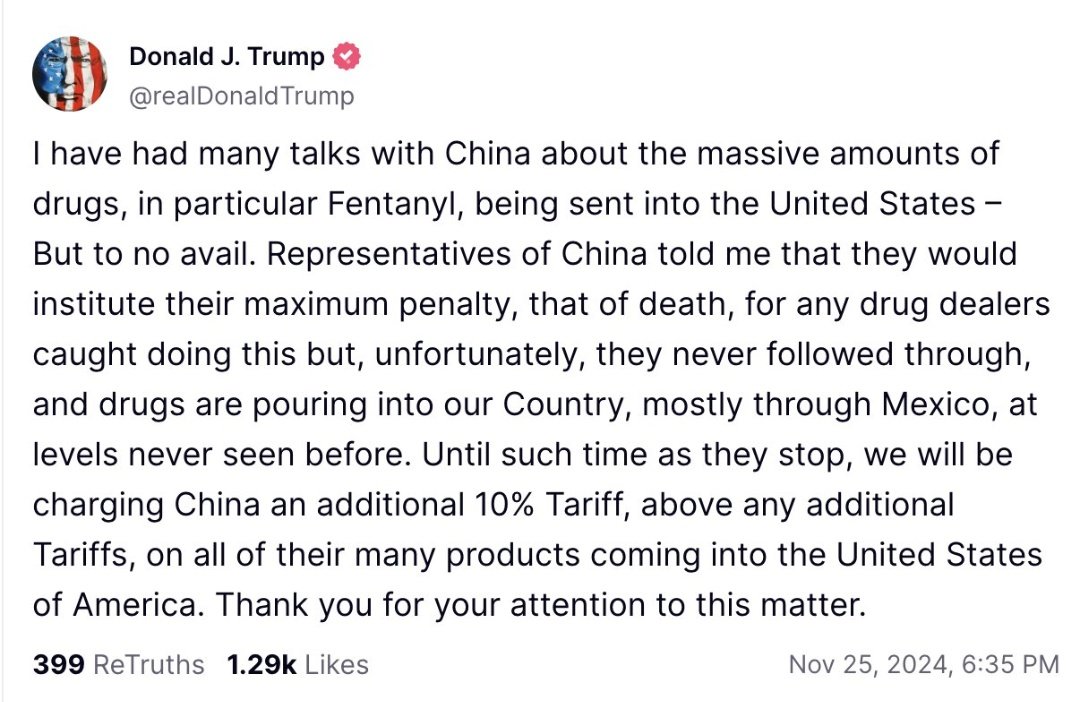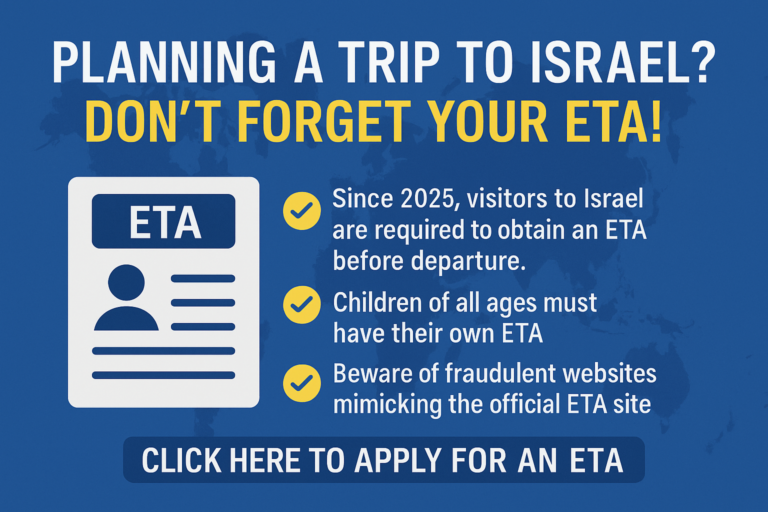President-elect Donald Trump announced plans on Monday evening to impose a 25% tariff on all products entering the United States from Canada and Mexico, along with an additional 10% tariff on Chinese imports. The measures, Trump said, are aimed at addressing illegal immigration and the flow of drugs, particularly fentanyl, into the country.
“As everyone is aware, thousands of people are pouring through Mexico and Canada, bringing Crime and Drugs at levels never seen before,” Trump wrote on Truth Social. Citing an “unstoppable” caravan crossing the U.S.-Mexico border, he pledged immediate action:
“On January 20th, as one of my many first Executive Orders, I will sign all necessary documents to charge Mexico and Canada a 25% Tariff on ALL products coming into the United States,” Trump said. “This Tariff will remain in effect until such time as Drugs, in particular Fentanyl, and all Illegal Aliens stop this Invasion of our Country! Both Mexico and Canada have the absolute right and power to easily solve this long-simmering problem.”

In another post, Trump directed criticism at China, accusing it of failing to crack down on drug traffickers despite prior discussions about imposing the death penalty for such crimes.
“I have had many talks with China about the massive amounts of drugs, in particular Fentanyl, being sent into the United States – But to no avail,” he stated. “Until such time as they stop, we will be charging China an additional 10% Tariff, above any additional Tariffs, on all of their many products coming into the United States of America.”

CNBC’s Washington correspondent Megan Cassella noted that implementing such tariffs on day one would require Trump to declare an economic emergency, a move that would likely face significant legal challenges. Additionally, the proposed tariffs on Canada and Mexico would disrupt the United States-Mexico-Canada Agreement (USMCA), a trade pact renegotiated during Trump’s first term, which would likely provoke retaliatory measures from trading partners and strain diplomatic relations.
Trump’s focus on tariffs as a tool to combat immigration and drug trafficking reflects a continuation of his hardline stance on trade and border security. Critics argue that such measures could harm American consumers and businesses by raising the cost of imported goods and destabilizing established trade agreements.
(YWN World Headquarters – NYC)












2 Responses
Just take a moment and think about what you purchase that will be impacted by tariffs, not just the Canadian and Mexican imports but world wide imports. How will the cost of disposables and plastics be impacted? And kosher meat imports? Non domestic evoo, spices, snacks (most of the snacks at Trader Joes are not made in the US)? It’s time to read the labels and plan for some coping strategies.
The phrase “undocumented immigrants” is a deceptive euphemism
that was invented by the anti-Jewish Marxists and Socialists,
who always attack Israel, and always help Israel’s genocidal terrorist enemies.
This deceptive euphemism was popularized with lots of help from:
President Barack Hussein Obama, the Marxist/Socialist news media,
Marxist/Socialist college professors, Marxist/Socialist Hollywood celebrities,
and the Marxist/Socialist branch of the Democratic Party (“The Squad”).
The correct phrase is “ILLEGAL ALIENS”, because
the correct phrase always was “ILLEGAL ALIENS”,
before the Marxists and Socialists changed the English language,
as part of an effort to promote their evil destructive goals.